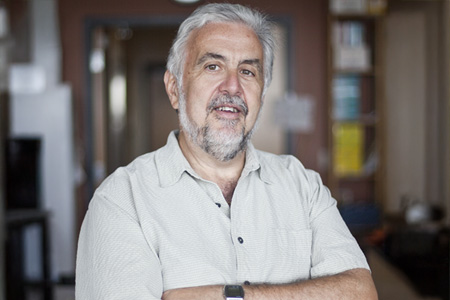| Meet the University of Wisconsin-Madison’s Timothy Donohue Professor of Bacteriology and Director, Great Lake Bioenergy Research Center |
 |
Research area The Donohue laboratory analyzes the networks microbes use to grow or produce bioproducts from renewable resources. Researchers dissect genomic, metabolic and regulatory pathways of bacteria that convert renewable resources, such as non-edible lignocellulosic plant biomass or dairy residues, into products that are currently derived from fossil fuels. Long range goals: understand pathways of societal importance; combine computational and experimental systems to design microbial machines with increased capacity to utilize renewable resources; and enable production of replacement or new fuels and chemicals.
Timothy Donohue leverages his expertise on bio-and genome-based conversion of renewable resources into valuable products as director of the Great Lakes Bioenergy Research Center, a renewable fuels and chemicals research center that has contributed to over 300 patent applications, 110 licensed technologies and seven startup companies.
What excites you about your work?
“I am excited by how the mining of genome sequences is uncovering secrets about living systems that have been hidden for billions of years. As a microbiologist, the combination of genomics and technology has provided us with new and exciting ways to identify the building blocks of microbial systems, how they are assembled into networks, and consider how to mix or alter these blocks to build new capabilities. I think there is no better place to do this than UW-Madison with its talented students, staff and faculty, their history of cross-disciplinary collaboration, and facilities for lab, field and computational research.”
What do you hope to achieve?
“Microbes are the original inhabitants of the Earth, performing chemical transformations for thousands of millennia. Just as carbon deposits eventually form diamonds, I predict genomic analysis of microbial activities will provide society with raw materials to generate 21st century advances in health, agriculture, the environment, today’s biotechnology industry and an emerging bioeconomy.”
Tim appreciates the broad, useful biology that microbes possess, and his research into how we can harness, modify and use that biology for production of commercially relevant chemicals gets us closer to the goal of a sustainable bioeconomy.
– Jennifer Gottwald, WARF, Director of Licensing
Want to learn more?
Jennifer Gottwald, [email protected], 608.960.9854